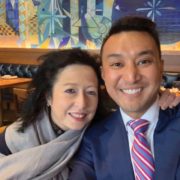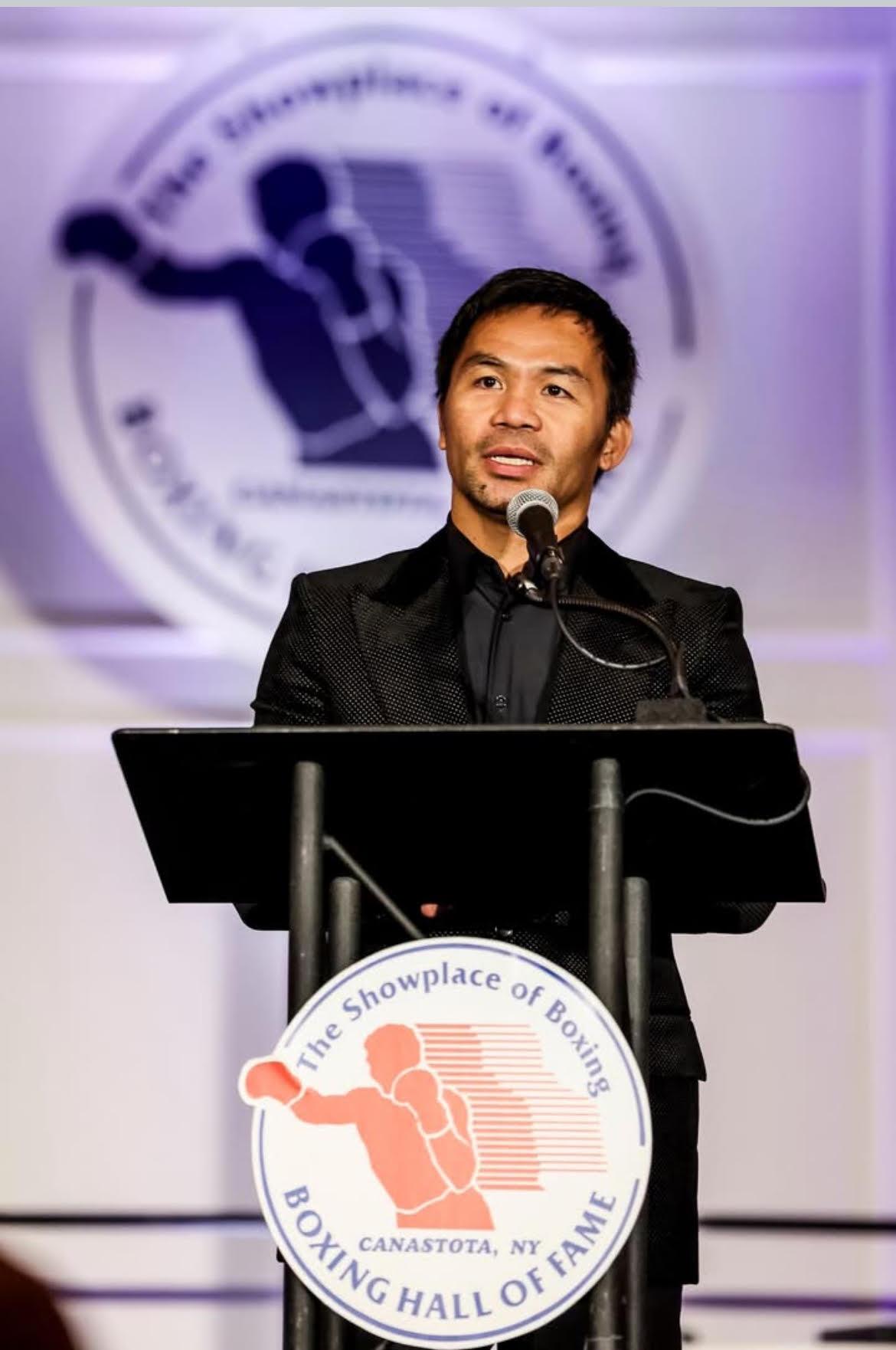Filipino American media professionals are paying tribute to veteran CBS News journalist and talent executive Maria Mercader who died over the weekend from the coronavirus.
Born and raised in New York, Mercader, 54, spent over 30 years at CBS as a producer and most recently was a director of talent strategy.
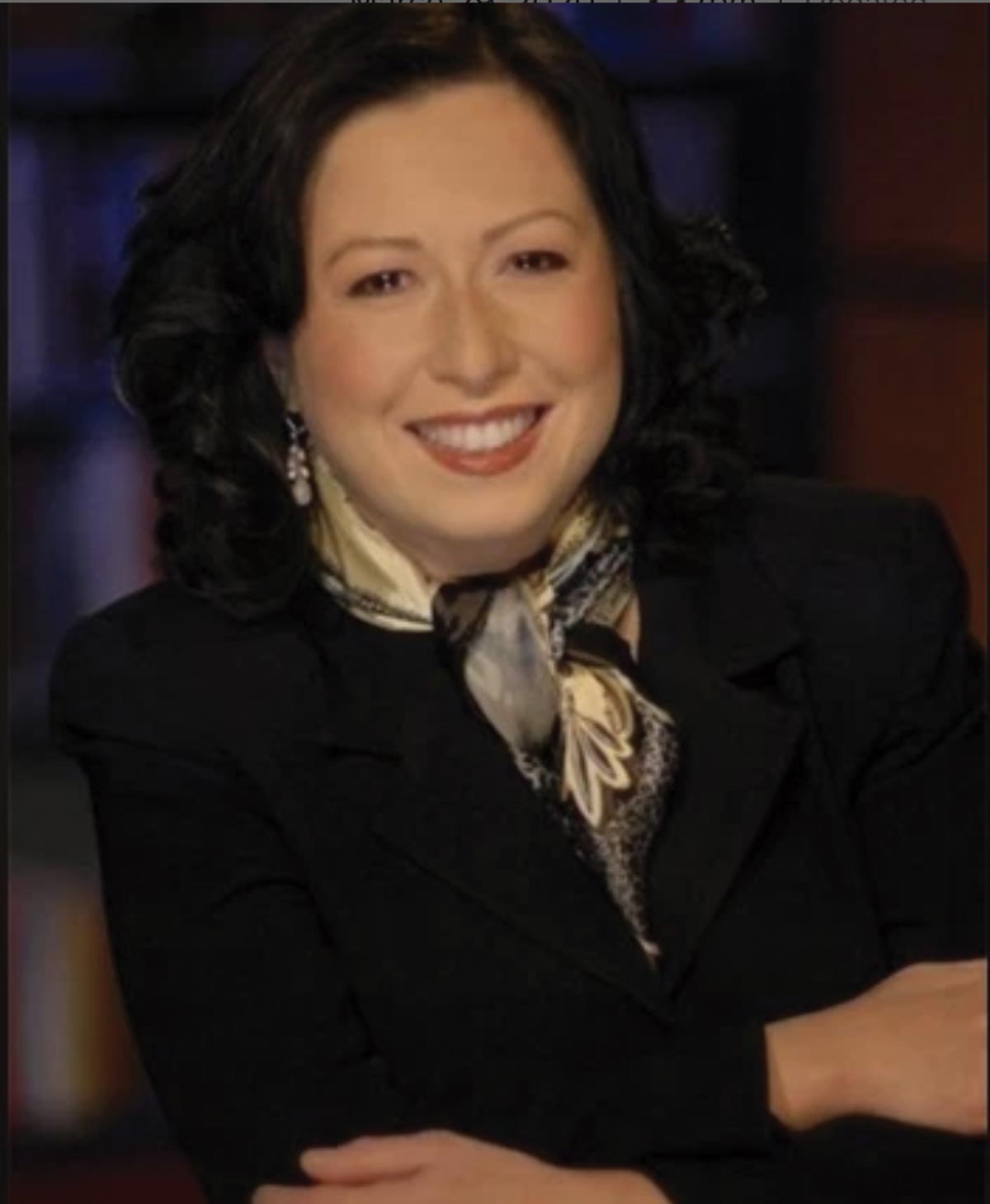
The Filipina American journalist got her start at the network’s page program in 1987 and rose the ranks to the CBS News foreign and national desks, guiding in the production of the biggest stories, such as the death of Princess Diana, the 9/11 attacks and Pope Francis’ visit to the United States. In 2004, she won a Business Emmy for a “CBS Sunday Morning” segment on computer spam.
She fought cancer and related illnesses for more than 20 years and had been on medical leave for an unrelated matter since the last week in February, according to the network.
CBS News Asia correspondent Ramy Inocencio — who was the first American TV journalist assigned to Wuhan, China when the virus first broke out and has since covered its spread to other Asian countries — said Mercader’s passing is a reminder of the coronavirus’ personal impact.
“Never would I have thought I would lose a friend half a world away when I first started reporting this. It’s just so important for everyone to remember coronavirus can affect us all. And it sadly does,” Inocencio wrote in an email to the Asian Journal.
The CBS News correspondent, who considered Mercader a friend for over 12 years, remembered how she never made herself or her health battles the focus when she was around others.
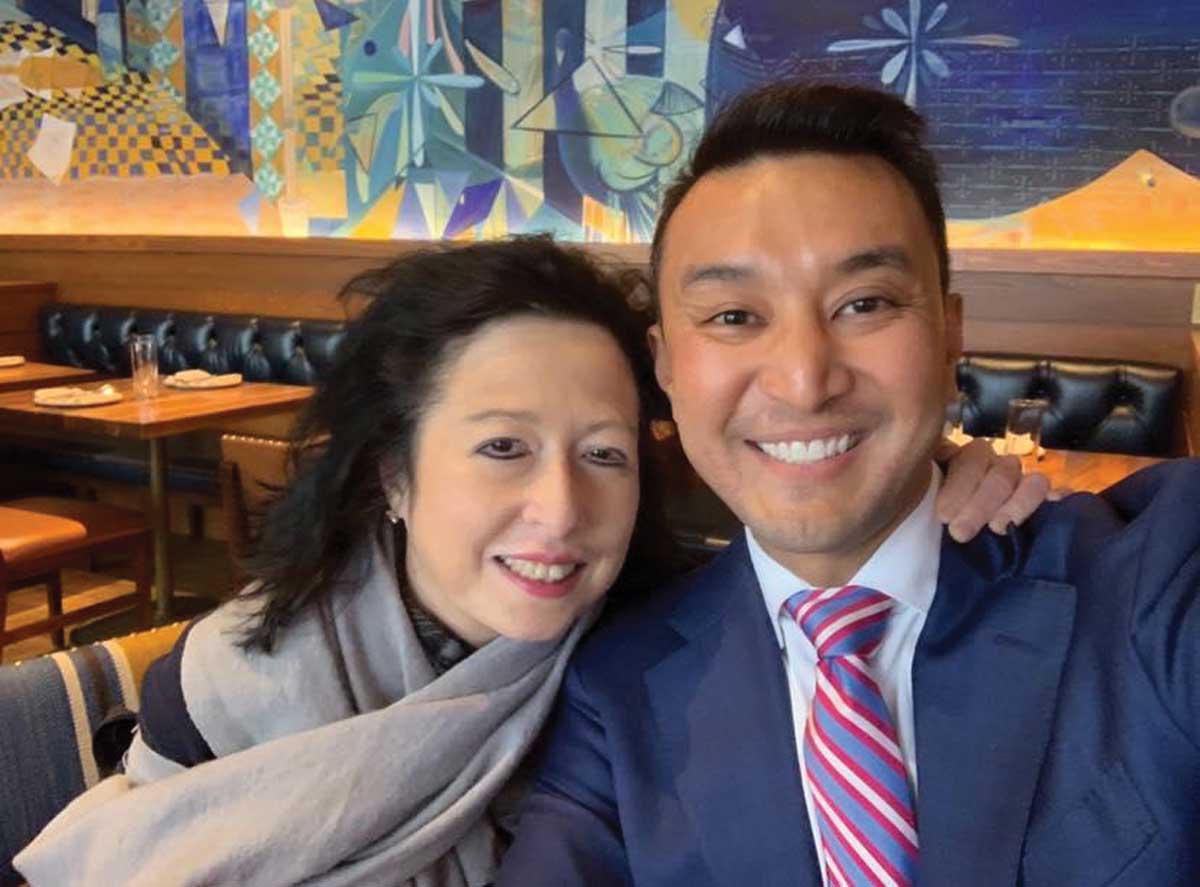
“Any normal person might have complained but she was strong…so strong. And sitting with her she always made it about ‘you…’ Yes, we talked about affairs of the heart along with career and Filipino food,” Inocencio said. “And she would make time for quality time — to talk about how you could rise, learn and be a better version of yourself.”
Inocencio thanked Mercader for recruiting him to join CBS and in helping land his current role as the network’s Asia correspondent based in Beijing, becoming the first Asian American in that capacity.
“That was her power, her loyal advocacy and her love. That she’s now left us makes me feel I have to work that much harder to make her proud from heaven — and I know she’s watching me all the time now and with a good glass of wine in her hand,” he said. “She’ll be missed terribly but the outpouring of love for her around the world I see now is just a beautiful torrential testament to the love she poured into the world when she was with us.”
Aside from news production, Mercader devoted time to the mentorship and professional development of rising journalists of color and helped coordinate CBS News participation in the Asian American Journalists Association, the National Lesbian and Gay Journalists Association and the National Association of Black Journalists.
She was a 2004 graduate of AAJA’s Executive Leadership Program in Chicago. Many Fil-Am journalists crossed paths with Mercader at the organization’s events and annual convention and became her friends and mentees.
Multimedia journalist Chris Casquejo did not work directly with Mercader but has known her since 2004 through AAJA and other professional gatherings.
“Maria was a fierce champion for diversity in newsrooms and very proud of her Filipino roots. I’m convinced that’s a big reason we connected on many levels: We were both Fil-Ams navigating our way through a demanding industry,” Casquejo wrote in an email to the Asian Journal.
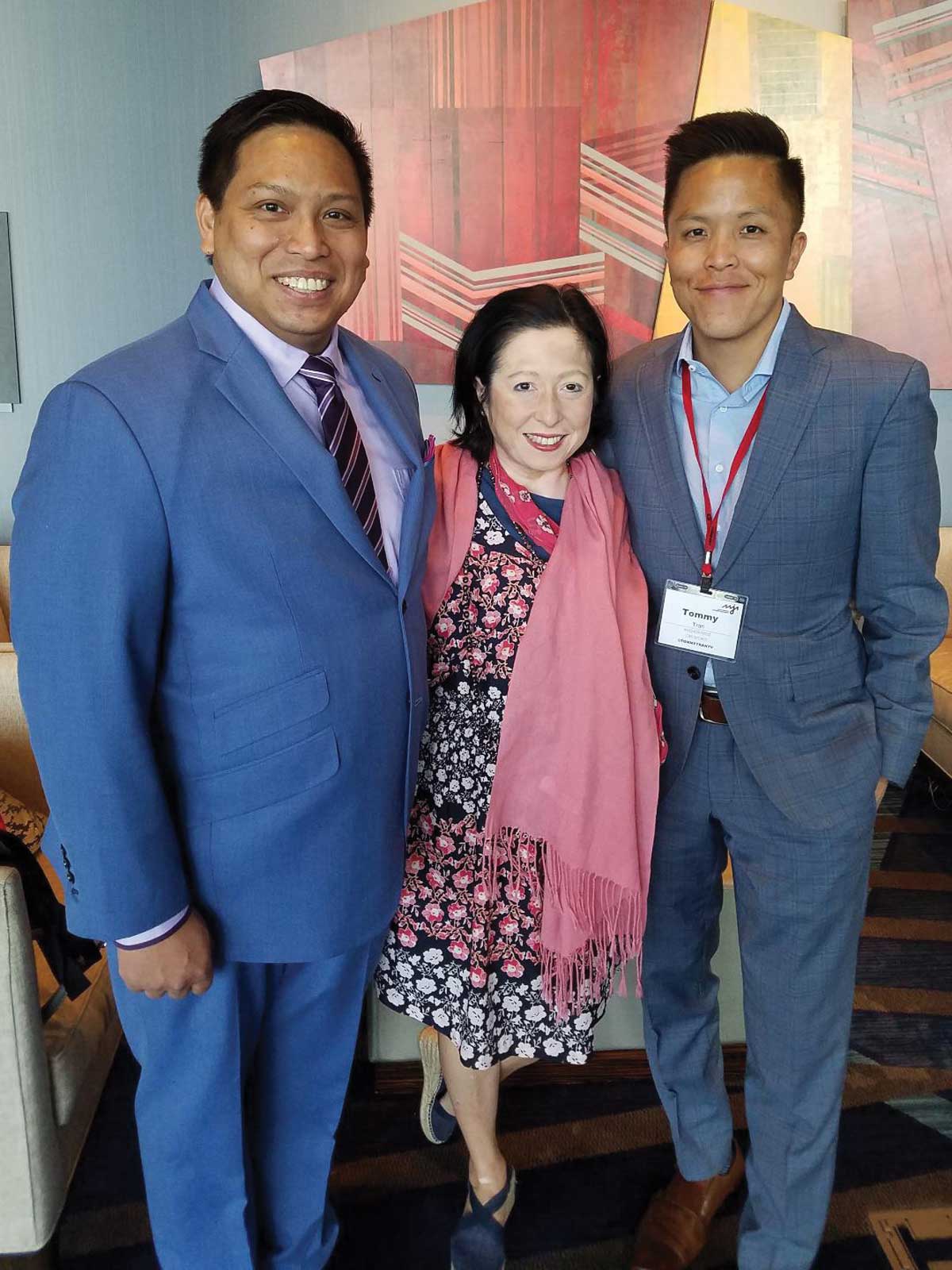
He spoke of her “brutally honest yet encouraging” way of critiquing resume tapes for budding broadcast reporters, how she made others “the most important person in the room,” and that she reminded journalists not only to excel in their careers but also to have a work-life balance.
But Casquejo’s favorite memory of Mercader was outside of reporting.
“Each time we saw each other, she would point to her right cheek before even saying hello. I wasn’t allowed to talk until I did two things: kiss her on the cheek and answer this question, ‘Are you dating anyone?’ When I would inevitably answer ‘no,’ I could see her matchmaking mind start to work. Only after she grilled me about dating could we catch up about what was happening in our lives. But I didn’t mind. She just wanted me to be happy in my career and personal life. She was truly like a Filipina Ate to me,” Casquejo added.
Will Chang, a former online editor and recruiter for the Associated Press, recalled how Mercader became a familiar face at job fairs and how she would try to find a way to bond with anyone she met.
“Even I wasn’t exempt from her playfulness. When we got to know each other, we both bonded over being ‘secret Filipinos.’ Most people would look at our last names and would assume we were something else, so we both got a kick out of surprising new people with being Pinoy. She never met my wife, so she would tease me and say that she didn’t think I was married,” Chang wrote in an email to the Asian Journal. “But I also remember her kindness. She made time for me when I was going through some rough patches and always [lent] an ear when asked. That is the Maria I remember. I just wish I got to know her better.”
The AAJA asked individuals to donate to the American Ballet Theatre and Memorial Sloan Kettering Cancer Center to honor Mercader’s legacy as a patron of the arts.
Mercader’s mother Gladys, who predeceased her, was the pianist for the American Ballet Theatre. She is survived by her father, Manuel, who worked in finance, and brother, Manuel, an attorney in New York.
**
Editor’s note: The Asian Journal is working to document those of Filipino descent who have lost their lives because of the coronavirus in the United States. If you know of someone or would like to offer a remembrance of someone who has died of COVID-19, please tell us about them by emailing digital@asianjournalinc.com with the subject line “Remembering Lives Lost.”


